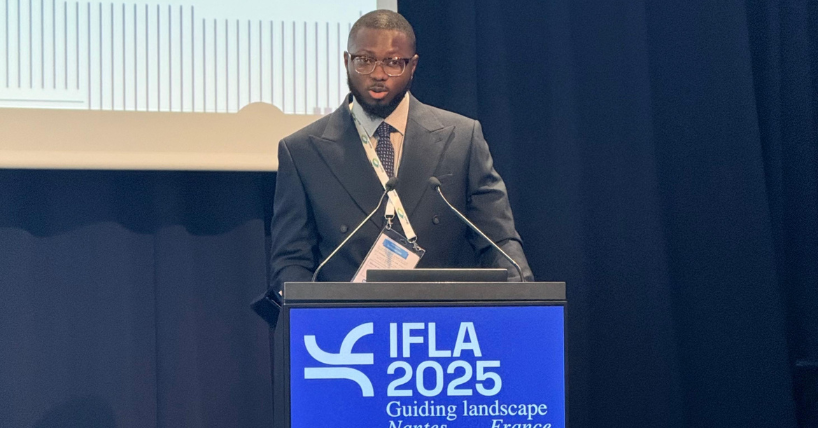
Key Themes from Precious Ovat’s Journey
Newcastle University’s Landscape Architecture master’s program has produced graduates who tackle complex environmental, social, and technological challenges. Precious Ovat’s story illustrates how hands‑on experience, field excursions, and interdisciplinary research can translate into large‑scale urban solutions.
From Familial Exposure to Architectural Ambition
Growing up in Nigeria, Precious first encountered the world of design through his father’s drafting table. This early contact with sketches in a practical setting sparked a conviction that architecture is not just about building shapes, but shaping how people experience and interact with spaces. The transition from tracing lines to crafting independent concepts set the groundwork for a career that merges imagination with technical rigor.
Choosing Newcastle University Among Global Options
Newcastle’s post‑industrial setting, coupled with a curriculum that balances theory, technology, and sustainability, made the university a natural fit for Precious. Field trips to the Sycamore Gap, Hadrian’s Wall, and Holy Island provided tangible lessons in heritage, ecology, and landscape. These excursions showed that Newcastle’s own history can serve as a classroom for designing resilient, inclusive environments.
Academic Foundations and Practical Engagement
During the MA Landscape Architecture, Precious developed a thesis that reimagined a brownfield site in Gateshead as a play park. The project addressed antisocial behaviour, boosted social cohesion, and demonstrated how adaptive reuse can transform contaminants into community assets. By modelling European industrial cities through native ecosystems, he added a new perspective on how digital tools can regenerate ecological patterns. These research outcomes were recently presented at the 61st International Federation of Landscape Architects World Congress, broadening the impact beyond the UK.
Living in a Post‑Industrial Testbed
Newcastle’s industrial legacy – contaminated soils, brownfields, a rich tract of listed buildings – forced Precious to rethink studio projects as ecological laboratories. The city’s ability to host renovation projects taught him that heritage can coexist with innovation when preservation is treated as a design asset, not an obstacle. He has since incorporated lessons on adaptive reuse into consultancy reports for firms in Africa and the Americas.
Expanding Professional Networks and Mentorship
Integral to Precious’s growth was the support from Newcastle’s alumni and professional networks. The university’s career support helped him secure part‑time roles at St. James’ Park, exposing him to the vibrancy of Newcastle’s football culture. These roles served not only as income but also as real‑world contexts for exploring spatial dynamics. The combination of an international student experience, part‑time work, and a tight cost‑of‑living climate fostered resilience, self‑discipline, and job‑management skills that are now core to his professional practice.
Long‑Term Vision: Smart Cities and Inclusive Landscapes
Looking forward, Precious envisions a sustainable, digitally‑integrated future. His ambition to lead projects that address climate change, affordable housing, digital innovation, and social justice speaks to the growing demand for architects who can translate complex data into design solutions. As a senior architect or landscape architect in an international firm, he plans to use his cross‑continental experience to shape public spaces that support community well‑being and ecological resilience.
Actionable Insights for Aspiring Landscape Architects
1. Engage in field trips – they ground theoretical learning in lived reality. Key takeaway: Studies conducted onsite reveal insights into local heritage and ecology that are impossible to capture in a lecture hall.
2. Combine research with studio work. Precious’s thesis demonstrates that a complex research agenda can directly inform a design proposal, creating a feedback loop that strengthens both outputs.
3. Leverage technology early. Digital modelling and AI are not niche; they are essential tools for mapping ecological patterns, optimizing material use, and communicating concepts to stakeholders.
4. Build diverse networks. Alumni events, industry conferences, and local community projects expand exposure and open doors for collaborations across borders.
Next Steps to Join Newcastle’s Landscape Architecture Community
Whether you are a recent graduate or an established professional seeking a curriculum that addresses ecological, social, and digital challenges, Newcastle University offers a pathway to advanced expertise. Engage with the School of Architecture, Planning and Landscape by attending public events or joining the local alumni groups for exchange of ideas.
Submit your application today to the MA Landscape Architecture and begin the next chapter of your design career.
Interested in specific projects or wish to learn about mentorship opportunities? Schedule a free consultation with the alumni relations team and find the right fit for your interests.
Ready to contribute to future smart cities? Explore our lifelong learning courses and stay updated on cutting‑edge sustainability research.
Have questions about study requirements, funding, or living in the North East? Write to us and an adviser will guide you through the registration process.
We’ll keep you informed about upcoming alumni events and professional opportunities. Stay connected with our alumni network and ensure you never miss a chance to influence the next wave of sustainable design.

